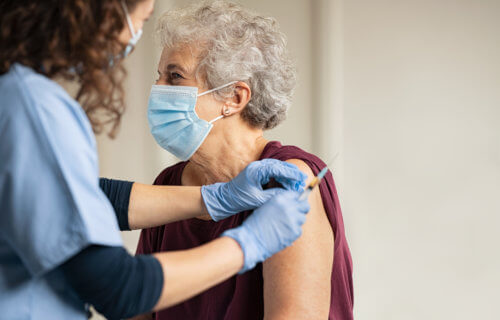NEW YORK — Many have been skeptical about COVID-19 vaccines, but according to a new global study, acceptance rates do appear to be slowly but steadily on the rise. An international team found COVID-19 vaccine acceptance increased by 3.7 percent between 2020 and 2021.
Researchers from the CUNY Graduate School of Public Health and Health Policy (CUNY SPH), the Barcelona Institute for Global Health (ISGlobal), the Dalhousie University, and the University of Calgary all collaborated on this project.
The findings come from a June 2021 survey of over 23,000 people living in 23 countries. Overall, over three-quarters (75.2%) of respondents say they accept the scientific evidence tied to the COVID-19 vaccine. That’s a notable increase from 71.5 percent a year earlier.
Predictably, concerns over vaccine safety and efficacy, or just a general distrust of science and doctors, continue to be the biggest reasons for vaccine hesitancy. Beyond those factors, vaccine hesitancy tended to fluctuate between countries and cultures, not to mention personal experiences — including sickness or the loss of a loved one. Demographic considerations such as gender and education level also play a role.
Interestingly, vaccine hesitancy did not significantly correlate with a given country’s current COVID-19 infection rate or mortality rate. Russia (48.4%), Nigeria (43%), and Poland (40.7%) rank as the most vaccine hesitant countries in the study. Meanwhile, China (2.4%), the United Kingdom (18.8%), and Canada (20.8%) saw the least number of people expressing fear over vaccination.
“In order to improve global vaccination rates, some countries may at present require people to present proof of vaccination to attend work, school, or indoor activities and events,” says CUNY SPH Senior Scholar Jeffrey Lazarus in a university release. “Our results found strong support among participants for requirements targeting international travelers, while support was weakest among participants for requirements for schoolchildren.”
Vaccine messaging is still important
Researchers also found that if someone was hesitant to get the COVID vaccine themselves, they were much more likely to signal opposition toward vaccine mandates.
“Importantly, however, recommendations by a doctor, or to a lesser extent by an employer, might have an impact on a respondent’s views on vaccination in some countries,” adds CUNY SPH Dean Ayman El-Mohandes.
While 2022 has seen many nations ease their COVID-19 safety measures significantly, study authors issue a stern warning: the pandemic is by no means over, and COVID-19 is still very much a global public health threat. Similarly, COVID-19 vaccination campaigns still have a lot of work to do, both in terms of convincing the vaccine hesitant to get the shot and ensuring vaccines are widely available throughout the planet.
How can vaccine advocates help turn the tide? Additional European research carried out by ISGlobal also found that young people from urban areas under the age of 24 and attending school tend to be the most vaccine hesitant age group. Notably, people around this age usually spend lots of time on social media. Most anti-vaccine campaigns on social media make use of humor, and study authors suggest fighting fire with fire; pro vaccination campaigns should use the same tactics.
Additionally, vaccine messages that emphasize one’s “moral obligation” to get vaccinated tend to be rejected by young adults. Instead, the team says these campaigns should focus on the “protection” provided by vaccines.
The study is published in the journal Nature Communications.


then why is Moderna trashing 30,000,000 doses? some lying going on again!